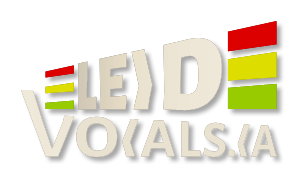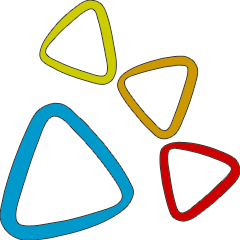Background
Music Licensing
As an artist you might sooner or later come to a point where you wish to use music, be it in form of a composition, a specific recording, or a part of a recording, that you didn't write and produce yourself.
In general it does apply that for any music you do not own or control you will need to obtain a license for the use. There are a few exceptions such as that works of the public domain can be used freely, or that a license might already be obtained by the provider of a specific service. In Canada per example, compositions become works of the public domain 50 years after the death of the longest living composer.
In music there are a multitude of different license types that control the use and recreation of musical compositions, audio recordings, the use of music in public, the reproduction of sheet music, and the performance of theatrical productions. Knowing the different types of licenses and when which license is needed will help avoid unintended copyright infringements.
- Mechanical License
- Synchronization License
- Master License
- Public Performance License
- Print License
- Theatrical License
Mara Machines MCI JH24 24-track analog tape machine
^ Mechanical License
If you plan to record a song written by someone else and you want to distribute the audio recording on a media or as a digital download, you need a mechanical license to ensure that the composer of the song receives a royalty on your recording. If a song is owned by multiple composers or entities, you will need a license from each owner.
Mechanical licenses are also needed if you plan to distribute a foreign recording in full or in part, or if you are preparing a medley containing one or more songs written by another person.
Mechanical licenses are very specific, as these will per example outline a particular musical work, limit the reproduction to a particular product, and mention the playing time and performer of the recording.
Examples
- You plan to record a cover song and upload it to SoundCloud
- You record a cover song with your band to distribute it on your CD
- You want to add a foreign recording to your compilation CD
- You record a medley containing one or more songs written by someone else
In Canada mechanical licenses for many publishers are issued through the Canadian Musical Reproduction Rights Agency Ltd. (CMRRA). Mechanical licenses are issued to manufacturers, people and companies who import sound recording products, online distributors, and the broadcast media. If you as an artist plan to publish on a third party online music service like e.g. iTunes or Spotify, it may be possible that the collection of royalties on behalf of the copyright holders is already done through the third party service. For songs from publishers which currently do not partner with the CMRRA the mechanical licenses need to be obtained directly from the copyright holders.
In the United States mechanical licenses are issued through the copyright holders directly, or through third party service providers. Mechanical licenses can not be rejected by law (see Compulsory Mechanical Licensing Law) and should be obtained before distribution of the recording. Reputable media manufacturers and online stores usually ask for proof of licensing before starting the production or publishing process. At Lead Vocals we have partnered with a service provider to help you obtaining mechanical licenses.
^ Synchronization License
If you plan to record a song written by someone else and you want to distribute the audio recording in combination with visual or other elements on a media or as a digital download, you need a synchronization license to ensure that the composer of the song will receive a royalty on your product. If a song is owned by multiple composers or entities, you will need a license from each of the owners.
Examples
- You plan to record a cover song and upload it to YouTube
- You record a cover song with your band to distribute it on your DVD
- You want to add a foreign recording to your compilation DVD
- You plan to use a foreign musical work in a film or television program
- You plan to use a foreign musical work in a commercial
- You record a medley containing one or more songs written by someone else to offer it as video download on your website
Synchronization licenses are custom negotiated and should be obtained upfront of production and use. The copyright holder is free to set any pricing and conditions, and can also deny issuing the license.
In Canada the synchronization licenses need to be obtained directly from the copyright holders. Only video streaming services can obtain synchronization licenses through the Canadian Musical Reproduction Rights Agency Ltd. (CMRRA) for participating publishers. If you as an artist plan to publish on a third party online video service like e.g. YouTube, it may be possible that the collection of royalties on behalf of the copyright holders is already done through the service provider. For songs from publishers which currently do not partner with the CMRRA the synchronization licenses also need to be obtained directly from the copyright holders.
In the United States synchronization licenses are issued through the copyright holders directly, or through third party service providers. At Lead Vocals we have partnered with a service provider to help you obtaining synchronization licenses.
^ Master License
If you plan to use and distribute a recording or a part of a recording, then you will need a master license. The master license ensures payment for the right to use a recording, and may for example be issued to a record label or artist.
In addition to the master license you will also need either a mechanical license (for audio distribution) or a synchronization license (for distribution of audio as part of video) to ensure payment of the composer.
Examples
- Use of background tracks and playbacks
- Use of recordings, per example on compilations
- Creation and use of samples
Master licenses should be secured before production of any media and before distribution, and are negotiated on an individual base. The license holder is free to set any pricing and conditions, and can also deny issuing the license.
^ Public Performance License
When you plan to perform a song that someone else wrote in public, or when you want to play recorded music in public, you may need to obtain public performance rights to ensure payment of the composer.
Examples
- Live or recorded music at an event
- Live music at concerts and shows
- Recorded music on new media (websites, apps, streaming services, …)
- Live or recorded music in a business (restaurants, stores, hotels, …)
- Music in broadcasts (radio, television, cable, …)
Venues oftentimes have already obtained public performance rights. If this is the case the performing artist, band, or DJ does not need to obtain the license privately. If you want to make sure that a certain venue is covered you can reach out to the venue or to the public performance rights agencies.
Public performance rights are usually obtained through contracts with public performance rights agencies such as ASCAP (American Society of Composers, Authors and Publishers), BMI (Broadcast Music, Inc.), and SESAC in the United States.
In Canada the Society of Composers, Authors and Music Publishers of Canada (SOCAN) has been assigned to collect and distribute royalties in behalf of the music creators. The tariffs for performing rights are set by the Copyright Board of Canada and account for mere fractions of a penny per song.
^ Print License
A print license is needed if you plan to print and distribute a copy of sheet music, notes, or lyrics for a song that you didn't write. The print license ensures payment of the composer.
Examples
- Print lyrics for a coversong on the leaflet of your CD
- Distribution of sheet music to an orchestra
- Creating a new arrangement of an existing composition
Print licenses are negotiated on an individual base. The license holder is free to set any pricing and conditions, and can also deny issuing the license.
^ Theatrical License
A theatrical license is needed if you plan to perform a theatrical production on stage that you didn't write yourself. The theatrical license ensures payment of the creators of the theatrical production.
Examples
- You produce a one time performance of "Les Misérables" with amateur cast and director
- You hire a professional cast to perform "The Phantom of the Opera" on several locations
- You plan to bring a "My Fair Lady" production to Broadway
- You perform a scene of "The Lion King" on a festival or competition
Theatrical licenses are negotiated on an individual base and oftentimes depend on cast and location. The license holder is free to set any pricing and conditions, and can also deny issuing the license.


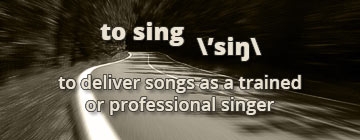
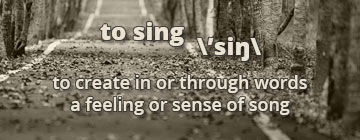
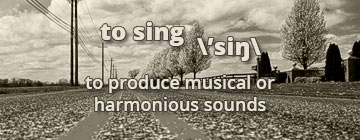
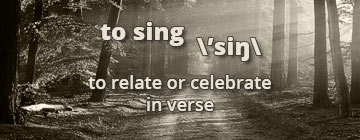
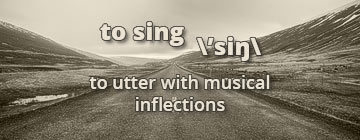
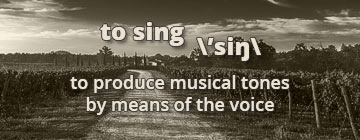
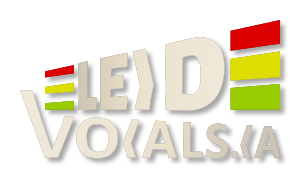

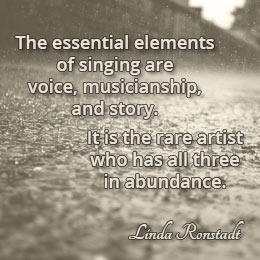

![Mara Machines MCI JH24 24-track analog tape machine, by Neve Sweden (Own work) [CC BY-SA 3.0 (http://creativecommons.org/licenses/by-sa/3.0) or GFDL (http://www.gnu.org/copyleft/fdl.html)], via Wikimedia Commons Mara Machines MCI JH24 24-track analog tape machine, by Neve Sweden (Own work) [CC BY-SA 3.0 (http://creativecommons.org/licenses/by-sa/3.0) or GFDL (http://www.gnu.org/copyleft/fdl.html)], via Wikimedia Commons](/files/images/articles/licensing/mci-jh24.jpg)
